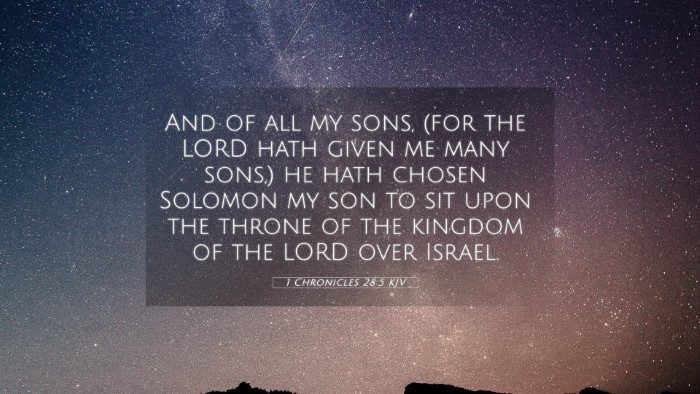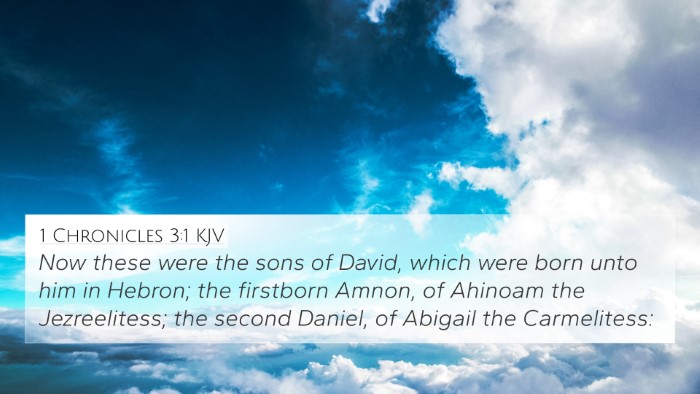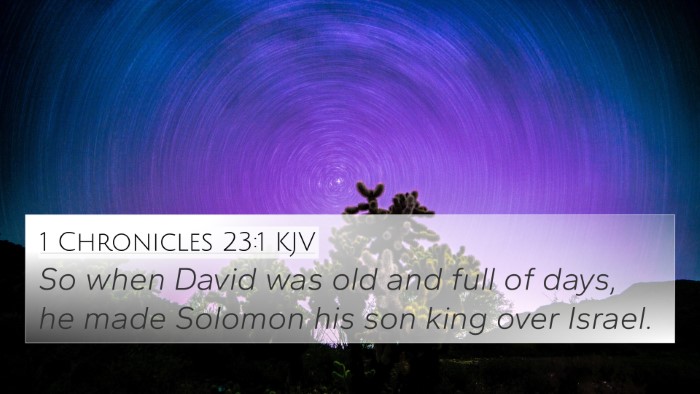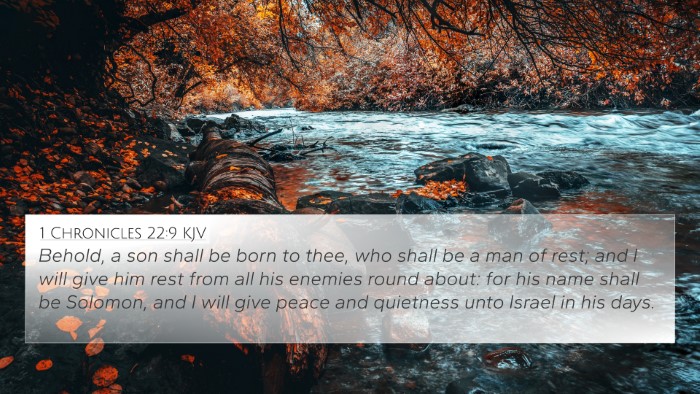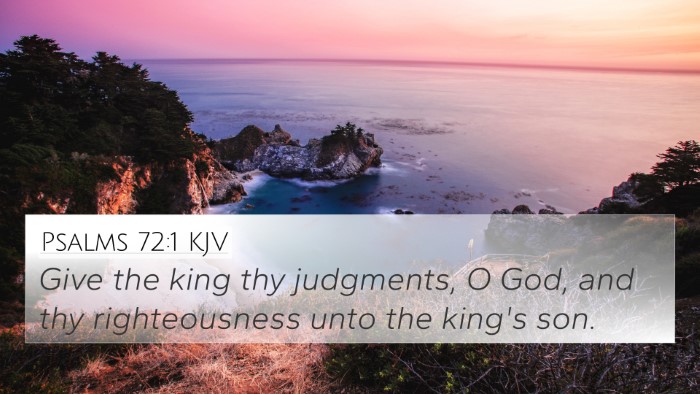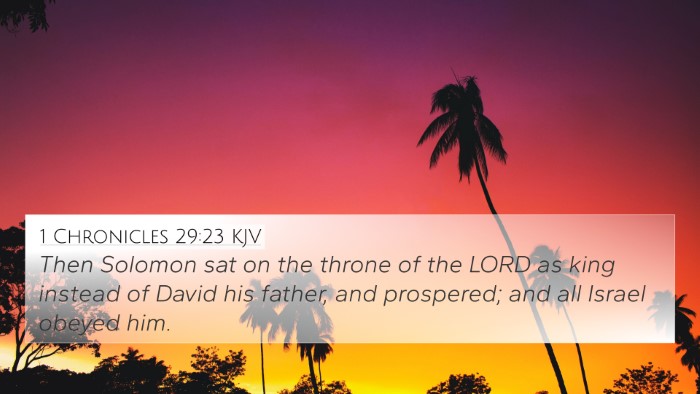Understanding 1 Chronicles 28:5
Verse: 1 Chronicles 28:5 states, "And of all my sons, for the Lord hath given me many sons, he hath chosen Solomon my son to sit upon the throne of the kingdom of the Lord over Israel."
Meaning and Context
This verse is situated within the narrative of King David's preparations to pass the throne to his son Solomon. It speaks to the divine selection of Solomon as the ruler of Israel, emphasizing both God’s sovereignty in choosing leaders and the significance of the Davidic lineage in biblical history.
Commentary Insights
- Matthew Henry: Henry highlights the importance of God's choice, illustrating how divine selection is pivotal in leadership. He emphasizes that Solomon, despite being one of many sons, was chosen for a specific purpose: to fulfill God's will in establishing a lasting dynasty.
- Albert Barnes: Barnes points out that this selection not only affirms Solomon's position but also fulfills the promises made to David regarding his lineage. The verse demonstrates how God's sovereign plan unfolds through familial lines.
- Adam Clarke: Clarke reflects on the nature of God's choices, noting that they are often contrary to human reasoning. He emphasizes the significance of Solomon's anointing as a divine endorsement of his future role and responsibilities as king.
Thematic Connections
This verse serves as a critical link in the chain of biblical themes concerning divine selection, leadership, and the fulfillment of promises. Here are some thematic connections derived from public domain commentaries:
- Divine Sovereignty: The choice of Solomon illustrates God's ultimate authority over human affairs.
- Fulfillment of Promises: The verse shows how God’s promises to David find fulfillment in Solomon's accession to the throne.
- Leadership Roles: It highlights the transition of leadership within the family, reflecting on how God governs both individual and national destinies.
Cross-References
In conducting a Bible verse cross-reference analysis, we can observe that 1 Chronicles 28:5 connects with several other scriptures:
- 2 Samuel 7:12-13: Discusses God's covenant with David regarding the establishment of his house and lineage.
- 1 Kings 1:33: Describes the anointing of Solomon as king of Israel.
- Psalm 89:4: Reflects God's promise to establish David’s throne forever.
- 1 Chronicles 29:1: Discusses the preparations made for the building of the temple by Solomon.
- Matthew 1:6: Affirms the genealogical connections of Jesus to David and Solomon.
- 1 Kings 2:12: Illustrates Solomon taking the throne after David's reign.
- Isaiah 9:6-7: Relates to the Messianic prophecy connected with David's lineage and Solomon's kingship.
Applications for Bible Study
This verse is significant for both theological study and personal reflection. Here are ways to apply the insights from this verse in your study:
- Bible Concordance: Use a concordance to study themes of leadership and God's selection throughout Scripture.
- Cross-Reference Bible Study: Engage with related verses to deepen your understanding of divine election and relational dynamics in the biblical narrative.
- Identifying Connections: Explore how the themes in 1 Chronicles 28:5 connect to the narratives in the New Testament, especially in reference to Jesus as the ultimate fulfillment of God’s promises.
Getting Deeper with Cross-Referencing
To gain a comprehensive understanding of connections throughout the Bible, consider the following:
- Utilize various Bible reference resources to enhance your understanding of biblical themes.
- Employ a cross-reference guide to trace the implications of God's choice of leaders in both the Old and New Testaments.
- Conduct a comparative study of the descriptions and attributes of kingship as shown in 1 Chronicles against those in the Gospels.
Conclusion
Through 1 Chronicles 28:5, we are reminded of God’s providential hand in the unfolding story of His people. The connections we draw from this verse to others amplify the depth of its meaning, providing a roadmap for understanding God's intentions throughout Scripture.

